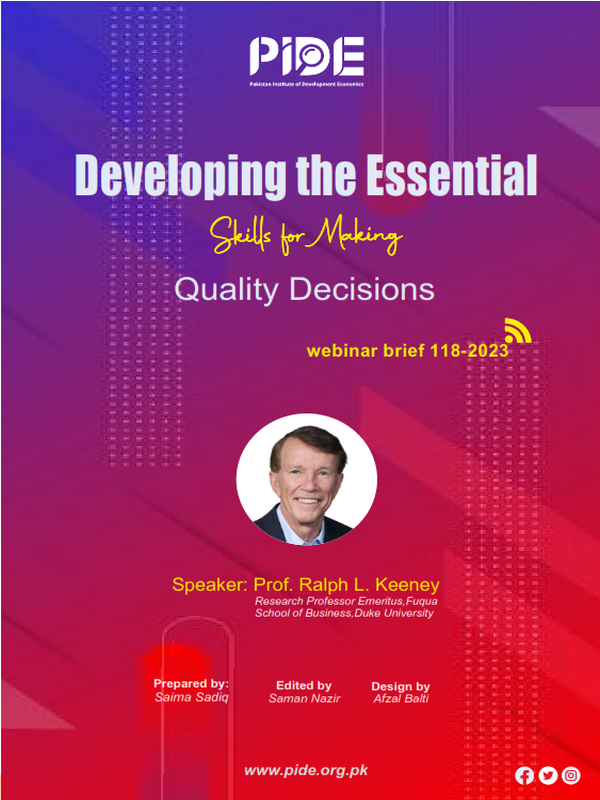Developing the Essential Skills for Making Quality Decisions
Improving decision-making is relevant to everybody because it is your primary life skill. You can improve your life, business, and organization through your decision. We can improve our decision-making like we improve our skills, such as by playing a sport or any musical instrument:
- Understand the decision skill.
- Learn how to improve.
- Practice, practice, and practice.
Practicing personal decision have some advantages as well, like you can practice when you want, and privately practicing with no one watching or judging leads to a better decision. The skills are relevant to any complex personal or business decision.
Front-end is to structure your decision, and the back end is to describe and evaluate your alternatives and make your decision. These two are the steps of a value-focused decision framework. Front-end is crucial, and it takes you from your initial thought that you have the decision to make to an unambiguous frame of the decision you should address. If you don’t know the objectives and alternatives, you cannot make the decision.
State the decision. Identify your values. Create alternatives
Very few decisions will have a back-end analysis, which is rarely worth the time and effort.
Element 1: State the decision you want to make.
When we are in a situation that requires a decision, we often feel that we understand our decision, so we move on to solve it. But our concept of the decision is unclear, so we end up addressing: only part of the decision that should be faced, an ambiguous decision or the wrong decision.
Poor Decision Statements:
My job isn’t interesting, and this has to change. Vague: is this about talking to your boss, improving your job, resigning getting a new job?
Should I exercise today Versus a policy decision to decide whether to exercise regularly?
Composing your Decision Statement:
Begin any decision statement with decide typically followed by which, what, when, where, whether, or how. Then, make sure that the statement summarizes the decision that you want to make. Another individual should clearly understand your decision by reading a good decision statement.
Element 2: Specify everything you want to achieve by making your decision.
The process to help identify your values for a decision:
Create a wish list. Stimulate additional values. Ask others for suggested values. Use your already identified values
Clarify values by stating them as objectives. Objectives are a value stated in a verb-object format that clarifies the meaning of that value.
Organizing your objectives for a decision: Fundamental objective is a basic reason for a decision. It should be used to evaluate and compare alternatives, and the main objective is an objective influence on achieving another objective. It should be helpful in identifying other objectives and creating alternatives.
Elements 3: Create a set of desirable alternatives for your decision.
Two important facts about alternatives. First, you can never choose an alternative that you have not identified. Second, your chosen alternative can be no better than the best of those that you have identified.
Decision Opportunities: You should make your decision. You should, at least more than you do, choose the decision that you face. Making the decision on problems that you must face is reactive. You have the power to create a decision that you choose to face. Decision problems usually do not improve your life, but decision opportunities usually do improve your life. Two main hindrances to creating decision opportunity are we don’t have a clear concept or term for what I call a decision opportunity, so it’s not easy to use. Secondly, since we have enough decision problems already, why should we create any more decisions for ourselves?
A concise summary:
- Each useful piece of information that you identify for making your decision is a nudge to make a better decision.
- The ideas presented today are easy to learn and easy to use.
- When used, your decision will be better.
- With practice, your decision-making skills will improve.
The net result is that less time will be required to make better decisions, so more time is available to enjoy the better consequences of those decisions.




